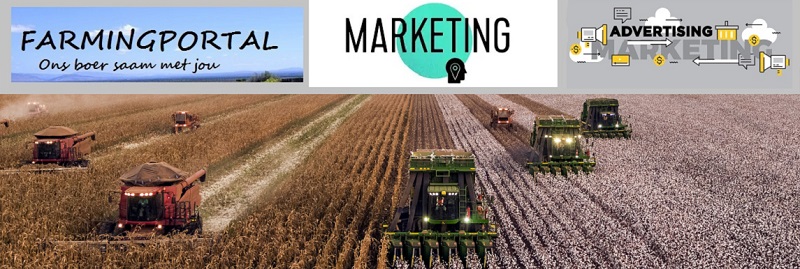The warnings from Remgro CEO Jannie Durand, Sakeliga's Piet le Roux, and economist Dawie Roodt aren't just alarmist rhetoric; they're a stark reminder of how fragile
South Africa's economic foundations remain in 2025. With the country grappling a decade of sub-1% GDP growth (averaging 0.8% annually from 2015-2024, per Stats SA), the specter of expropriation without compensation (EWC) under Section 25 of the Constitution could indeed be the "final straw," as Le Roux puts it. This isn't hyperbole—it's rooted in investor psychology, where property rights are the bedrock of confidence. Let's unpack the stakes, the Ekurhuleni case, and why this debate feels like a rerun of South Africa's unresolved land fault lines, now amplified by global capital flight.
At the heart of Durand's concerns is the Business Venture Investments 900 (BVI 900) saga, a six-year legal odyssey that's become a proxy battle for EWC's viability. In February 2019, the City of Ekurhuleni issued a notice to expropriate Portion 406 of Farm Driefontein—a 21-hectare plot in Benoni, valued at R30-40 million by independent appraisers—for public infrastructure (roads and stormwater). BVI 900, a black-owned development firm led by entrepreneur Siviwe Donga, had already secured rezoning approvals for 500 affordable housing units, targeting low-income families in a high-unemployment area. Far from "idle land," it was primed for job-creating development.Yet, Ekurhuleni offered zero compensation, citing "nil market value" due to alleged prior illegal occupation and environmental issues—claims BVI disputes vigorously.
The Gauteng High Court initially ruled in the city's favor in 2022, but appeals have dragged on, with mediation slated for October 2025 and a full 18-day trial in February 2026. If BVI loses, it won't just bankrupt a black entrepreneur; it could greenlight a cascade of "zero-comp" seizures, chilling urban development nationwide. As Durand noted, this erodes trust in "productive land use"—why invest in housing or retail if the state can swoop in gratis? Sakeliga, which publicized the case, has filed amicus briefs, arguing it violates not just Section 25(2)'s "just and equitable" compensation clause but also the Promotion of Administrative Justice Act.This isn't isolated: Similar disputes simmer in eThekwini (Durban) over beachfront land and in Tshwane for informal settlements. By mid-2025, the Land Claims Court reported over 200 pending EWC applications, up 40% from 2023, per ConCourt filings.
 VIEWPOINT- The Future of Farming - Agri X South Africa
VIEWPOINT- The Future of Farming - Agri X South Africa
Le Roux's quip that market-value expropriation is the "cheapest" way hits home economically. Undervaluing assets doesn't just hit owners—it ripples: Property valuations could drop 15-20% overnight (Moody's 2024 estimate), slashing municipal rates revenue by billions and deterring R1.2 trillion in planned infrastructure spend (National Treasury, 2025 Budget). Politically motivated "zeros," as in Ekurhuleni, fuel perceptions of arbitrariness, echoing Zimbabwe's 2000s farm seizures that triggered 80% agricultural collapse.Roodt's services-economy pivot is spot-on and under-discussed. South Africa's GDP composition has flipped: Primary sectors (agriculture/mining) now <15% (down from ~40% in 1994), while services hit 65% in 2024 (World Bank data). Agriculture employs just 5% of the workforce but feeds 60 million—yet EWC fixation romanticizes a pre-industrial past. President Ramaphosa's 2025 State of the Nation Address pushed "progressive land reform" with R10 billion for smallholder farmers, but critics like Roodt argue it diverts from skills training in fintech, tourism, and renewables—sectors driving 70% of new jobs (ILO 2025 report). Inequality persists (Gini 0.63), but land grabs won't fix it; education and broadband will.
EWC isn't new—it's the ANC's 2018 policy thunderbolt, failing a 2019 parliamentary vote but revived via 2021 constitutional tweaks allowing "nil compensation" in "equitable" cases (e.g., abandoned land). The 1913 Natives Land Act's scars linger, with 80% of farmland still white-owned (per 2024 AgriSA audit), fueling calls for redress. But implementation has been glacial: Only 9% of restitution claims settled since 1994, costing R20 billion+ in delays (Audit-General 2025).Globally, 2025's FDI drought amplifies risks—SA's inflows dipped to $4.2 billion (down 25% YoY, UNCTAD), with investors citing "policy uncertainty" (including EWC) in 60% of surveys (PwC Africa Business Barometer). Remgro, as a JSE blue-chip (market cap ~R70 billion), embodies this: Its 2024 results showed 12% dividend growth but hedged bets with 40% offshore assets, signaling caution.Government pushback? Minister Gwede Mantashe insists EWC targets "speculative holdings," not productive farms, with safeguards via the Expropriation Bill (gazetted March 2025). Yet, opposition from DA/IFP coalitions in key provinces vows court blocks, potentially tying up resources for years.
Durand's "severe consequences" aren't abstract—they're a jobs bloodbath. A 2024 Stellenbosch University model predicts EWC could shave 1-2% off GDP annually, adding 500,000 unemployed in a 33% rate already. For black-owned firms like BVI, it's existential: Why bootstrap developments if the state plays referee and goalie?This debate tests South Africa's soul—balancing historical justice with future prosperity. Le Roux is right: Start at market value to build, not break. As 2026 elections loom, expect EWC to be a wedge issue, but the real win? Hybrid models like Japan's post-WWII reforms: Compensated redistribution fueling growth. SA could learn from that—before one court case does break the camel's back.
FLEXBOX -- 155 (sold) South Africa - Happy Families training together in the comfort of their homes- The USA is wide open and the first boxes are been shipped.
 VIEWPOINT- The Future of Farming - Agri X South Africa
VIEWPOINT- The Future of Farming - Agri X South Africa 
















